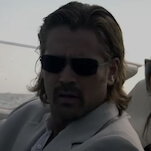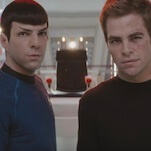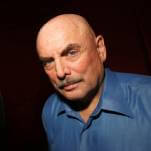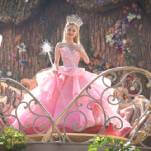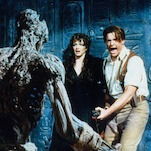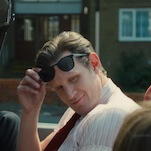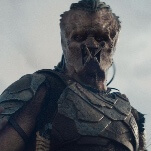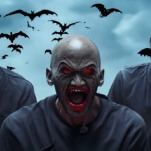Pop culture can be as forbidding as it is inviting, particularly in areas that invite geeky obsession: The more devotion a genre or series or subculture inspires, the easier it is for the uninitiated to feel like they’re on the outside looking in. But geeks aren’t born; they’re made. And sometimes it only takes the right starting point to bring newbies into various intimidatingly vast obsessions. Gateways To Geekery is our regular attempt to help those who want to be enthralled, but aren’t sure where to start. Want advice? Suggest future Gateways To Geekery topics by emailing [email protected].
Why: Hellman’s 1971 movie is justly ranked with Easy Rider and Vanishing Point as a classic countercultural road movie. But it doubles as a profoundly melancholy subversion of the genre’s individualist ethos. James Taylor and Beach Boys drummer Dennis Wilson play a driver and mechanic who are so devoted to racing their ’55 Chevy that they barely seem to exist outside of it. (They don’t even have names, just roles; in the credits, they’re simply The Driver and The Mechanic.) A sharp exchange with the dandified driver of a late-model G.T.O. (Hellman standby Warren Oates) leads to the ultimate challenge: a cross-country race from Arizona to Washington D.C., with the winner taking custody of both cars. But in spite of their plans to drive straight through, both cars drift into crumbling backwaters well off the main drag, in what becomes a travelogue through the heartsick heartland.
Like his contemporary Sam Peckinpah, whose Pat Garrett And Billy The Kid was, like Two-Lane, written by post-Beat novelist Rudy Wurlitzer, Hellman internalizes the allure of masculine archetypes while mourning their destructive power, although some viewers only get half the picture. Gearheads take the driver’s exclamation “You can never go fast enough” as a battle cry, but there’s a note of fatalism in its bravado. If you can’t go fast enough, why go at all?
Next steps: In 1965, Hellman asked Roger Corman for the money to shoot a Western, and the characteristically thrifty Corman told him to make two. Both The Shooting and Ride In The Whirlwind feature Corman regular Jack Nicholson, who also wrote the script for the latter. (The former is by Five Easy Pieces’ Carole Eastman, pseudonymously credited to Adrien Joyce.) The result was a pair of oaters as sparse and unforgiving as anything the genre has to offer. The Shooting is so spare, it verges on abstract art. It sends a makeshift posse, including Oates’ prospector and Nicholson’s hollow-eyed gunslinger, on a search whose object remains deliberately unclear. It’s Duel In The Sun by way of No Exit. Look for the out-of-print VCI discs, which give Hellman’s cult classics the gold-star treatment.
Cockfighter, Hellman’s 1974 follow-up to Blacktop, isn’t for Hellman newbies or the squeamish, since its quasi-documentary footage of brutal cockfights is decidedly unstaged. But the portrait of a bird trainer (Oates) so unmanned by the death of a prize rooster that he gives up the power of speech is an unflinching masterwork, bold and bracingly uncommercial. (It’s also the last of Hellman’s films to feel like it was made with creative autonomy.) Taken from a novel by Charles Willeford (Miami Blues and the Wrapped Up In Books selection The Woman Chaser), the movie goes down like a shot of hard liquor: It burns, but it burns clean. Anchor Bay’s DVD is out of print, but it’s reportedly superior to Synapse’s pan-and-scan disc.
Where not to start: Unless you’re studying for a celebrity roast, steer clear of Silent Night, Deadly Night III: Better Watch Out!, Hellman’s 1989 contribution to the ignoble slasher franchise, and his last feature to date. (Though hopefully, the upcoming Road To Nowhere will change that soon.) Mixing in psychic powers and a smattering of David Lynch alumni (Twin Peaks’ Richard Beymer and Eric DaRe; Mulholland Dr.’s Laura Elena Harring), the movie is so preposterous as to suggest deliberate parody. How else to explain the fact that Bill Moseley’s scalpel-wielding “coma victim” totters around with a metal dome screwed into his skull, topped with a knit cap to keep out the winter cold? At least Hellman’s contribution to the lackluster horror anthology Trapped Ashes doesn’t try for scares—instead, it focuses on an EC Comics-style parable about a young Stanley Kubrick.
